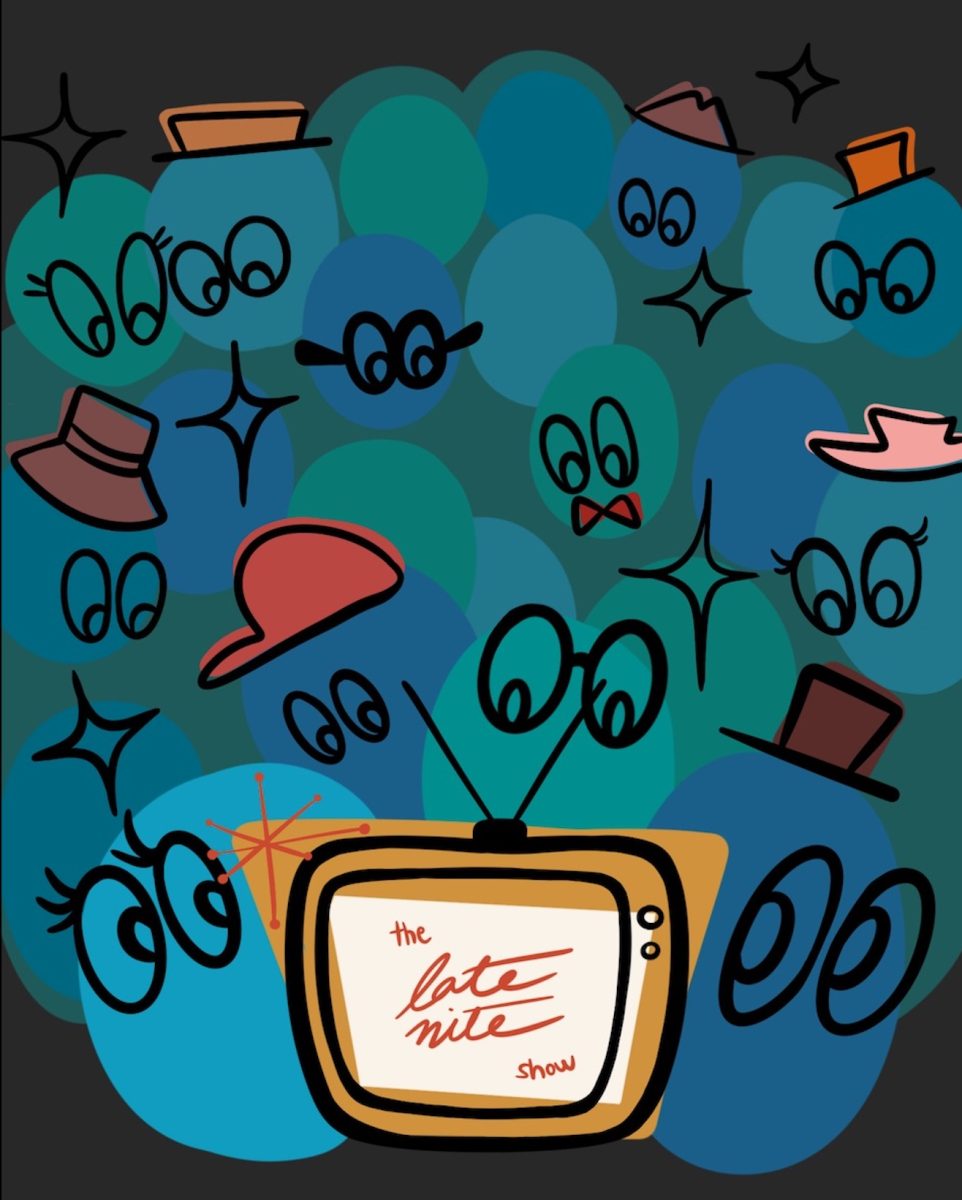Technology has changed everything for us. We went from patiently waiting for our programmed TV shows, where we would gather our news to entertainment, to now having 24/7 access to everything in our pockets, purses and more.
Not only do we have access to content anytime, we have access to any type of content anytime. Many people don’t watch an hour-long program when they can watch a one-minute clip highlight the next day on social media, then move on to the next best thing vying for their attention. We now have the attention span of squirrels.
One historically popular form of programmed TV has been late-night — a genre of talk shows with a format that centers around monologues, interviews, comedy sketches and music.
While late-night TV once served as a cornerstone of pop culture, its traditional format is facing challenges in the digital age. At its peak, late-night TV had a 15 million audience average during the years of The Tonight Show Starring Johnny Carson, airing from the ‘60s to the ‘90s, according to NPR. Fast forward to now, Variety reported that CBS’s “The Late Show with Stephen Colbert” came out on top this fall in terms of viewers at 2.66 million.
As viewership declines and online streaming platforms redefine the media landscape, it’s clear that the era of late-night as we know it is evolving. Late-night TV is not dead, but the historically popular version we are familiar with is declining. I still believe the genre has value, and it still has a place in society.
In my parents’ generation, late-night was their way of staying up-to-date with pop culture. As my mom would say, fondly reminiscing about her late-night viewings of the Johnny Carson show, “It was the only time I got to know anything about a celebrity or a new musician.”
The reason late-night has been such a successful format for so many years is because it provided a shared cultural experience that brought people together regardless of their political affiliations or cultural differences. Viewers found commonality in humor and humanity.
A CNN article identifies economics as the primary issue, with late-night no longer attracting significant ad revenue due to shifting viewer habits toward streaming or online clips.
While traditional late-night TV isn’t obsolete, its consumption has evolved. Many people now access content through subscriptions. Fallon’s YouTube channel hit 30 million subscribers, 1.5 million more since the article was written, indicating a shift toward selective viewing of late-night segments rather than entire shows.
This cultural shift makes sense. Watching content, whether through social media or streaming, accommodates busy schedules and jobs with odd hours, but that does not mean it is better in all aspects. Convenience is a wonderful option, but it’s not the only one.
Constantly finding instant gratification within our media consumption distracts us from each other. We choose to consume content over experiencing human connection. Out in public, I often see people sitting together but absorbed in their phones and disconnected from each other. Similarly, I notice family members consuming different media while being physically present in the same room, yet mentally living in totally different worlds.
What if we slowed down, looked forward to the same program (rather than succumbing to new media’s instant gratification) and embraced content that fosters unity instead of division?
In order to keep the option of appointment viewing, it will take audience investment, so ad revenue increases and ultimately the format’s prominence returns.
Late-night television stands out for its ability to blend humor, entertainment and cultural commentary, creating an environment for shared laughter in an increasingly fragmented media landscape
We do not need to go back entirely to where things were, nor should we only accept convenience. It’s possible to embrace change while also keeping aspects of the old wave that were positive for us.
I am a big proponent of having viewing options, but there comes a certain point where we don’t know what to do with all of them. And I think in some regard, it has hurt society. Whether it’s late-night or some other form of entertainment, I think it’s time we employ simpler viewing habits to make our experience more intentional and ultimately more meaningful.
Although it may seem impossible for one source of entertainment to have such an impact culturally at this time, do I think it is a worthy and admirable goal to reach for? Absolutely.
Perhaps it’s time we revisit the simpler days where we urge our siblings to hurry back with the snacks as the show resumed from a commercial break.






